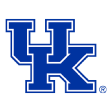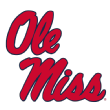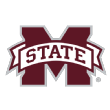Welcome back to our continuing look at one key question in this transfer-obsessed era: Just how important have transfers been — whether due to addition or subtraction — to each program in Division I’s top seven conferences?
Last week, we considered the Pac-12. Before that, it was the AAC and the Big 12. Today we turn our attention to the Pac-12.
Note that we define a “transfer in” as someone who actually played minutes previously at a different four-year program. Conversely, a “transfer out” is simply a player who saw time at the SEC program in question.
That’s all pretty straightforward, right? Here are the most significant SEC transfers of the modern era.

Best transfer in: Jahvon Quinerly, 2020-22
Quinerly has been Alabama’s second leading scorer in each of the last two seasons. The onetime Villanova Wildcat may have lost out on his “best transfer in” bragging rights, however, had former Tulane star Ricky Tarrant not suffered a ruptured plantar fascia while playing for the Crimson Tide in January 2015. Tarrant was on his way to what appeared to be a first-team All-SEC kind of season.
Most significant transfer out: Braxton Key, 2016-18
Key wins this contest by a hair over Nick King. Working in Key’s favor are his 47 starts at Alabama before he averaged 20 minutes for Virginia’s 2019 national championship team. By contrast, King — who was, to his credit, the 2018 Conference USA player of the year at Middle Tennessee — was more of a fleeting presence in Tuscaloosa, appearing in just seven games in 2016-17 after transferring in from Memphis.

Best transfer in: JD Notae, 2020-22
Notae averaged 18 points and better than two steals per contest on his way to first-team All-SEC honors last season. He began his career at Jacksonville, where he scored more than 900 points over the course of two seasons.
Most significant transfer out: JaCorey Williams, 2012-15
Williams started seven games across three seasons with Arkansas before transferring to Middle Tennessee. He was named the 2017 Conference USA player of the year, and his No. 12 seeded Blue Raiders reached the round of 32. Williams earned his “best transfer out” title over a host of talented ex-Razorbacks like Rotnei Clarke, Nick Weiler-Babb and, going back a ways, J.J. Sullinger, a three-year starter at Ohio State in the early 2000s.

Best transfer in: Walker Kessler, 2021-22
Kessler was named the national defensive player of the year last season. The selection of the onetime North Carolina reserve for this particular award was arguably a no-brainer, especially as Kessler blocked 10 or more shots in a single game not once but twice in 2021-22.
Most significant transfer out: Davion Mitchell, 2017-18
Mitchell earned consistent playing time in his single season at Auburn, yet he did so exclusively coming off the bench. He then elected to transfer to Baylor, and the rest is history. Within a span of 145 days in 2021, Mitchell was named both first-team all-conference and the Big 12 defensive player of the year, his Bears won the national championship and he was taken with the No. 9 pick in the NBA draft.

Best transfer in: Dorian Finney-Smith, 2013-16
Finney-Smith’s three seasons at Florida spanned the Billy Donovan and Michael White eras, and in each of his last two years he was the Gators’ leading scorer. The current Dallas Mavericks star began his college career playing for Seth Greenberg at Virginia Tech.
Most significant transfer out: Mario Boggan, 2002-03
Boggan cycled through Florida, St. Bonaventure (briefly, and without actually taking the floor for the Bonnies) and Chipola Junior College before landing at Oklahoma State and earning first-team All-Big 12 honors with the Cowboys in 2007. He edges out 2022 Cousy Award finalist and Gonzaga mainstay Andrew Nembhard (who played for the Gators from 2018 to 2020) for this distinguished title.

Best transfer in: Gerald Robinson, 2010-12
Robinson can and should boast to anyone within earshot that he was the leading scorer on a 2011-12 Georgia roster that also included Kentavious Caldwell-Pope. Prior to joining the Bulldogs, Robinson rang up over 1,000 points in two seasons at Tennessee State.
Most significant transfer out: Sahvir Wheeler, 2019-21
Wheeler averaged 31 minutes and 11 points over two seasons, during which Georgia compiled a 30-28 record. He then averaged 31 minutes and 10 points for a Kentucky team that went 26-8 in 2021-22.

Best transfer in: Oscar Tshiebwe, 2021-22
Tshiebwe captured both the Wooden and Naismith Awards for 2022, making him not only UK’s best transfer but one of the most decorated ones in college basketball history, period. He showed tremendous potential at West Virginia, then delivered on it to the tune of 17 points and 15 rebounds per outing for the Wildcats last season.
Most significant transfer out: Johnny Juzang, 2019-20
Juzang averaged just 12 minutes in a Kentucky rotation that included Tyrese Maxey, Immanuel Quickley and Ashton Hagans in 2019-20. He transferred to UCLA and promptly fueled the Bruins’ miraculous run from the First Four to a classic national semifinal against Gonzaga in 2021. He was also a preseason first-team All-American selection for 2021-22.

Best transfer in: Tari Eason, 2021-22
Eason started just four games for the Tigers last season, but his performances coming off the bench appear to have impressed the right people. The onetime Cincinnati scorer and rebounder is projected to be a mid-first-round pick in this summer’s NBA draft.
Most significant transfer out: Ralston Turner, 2010-12
Turner started for the NC State team that stunned No. 1 seed Villanova in the “piccolo girl” game in the 2015 round of 32. Prior to that, he had averaged 11 points in two seasons at LSU.

Best transfer in: Marshall Henderson, 2012-14
Henderson heralded the arrival of a new, more perimeter-oriented era in college basketball in rather spectacular fashion. In two seasons at Ole Miss, he launched no fewer than 771 attempts from beyond the arc while averaging 19.6 points. Before he was lighting up scoreboards for the Rebels, Henderson started for a 2009-10 Utah team that went 14-17.
Most significant transfer out: Dwight Coleby, 2013-15
Coleby saw sporadic minutes in two seasons at Ole Miss before earning even less playing time at Kansas in 2016-17. It wasn’t until he got to Western Kentucky that he showed what he could really do. Coleby shot 60% on his 2s as a starter for a Hilltoppers team that came within a basket of winning Conference USA’s automatic bid in 2018.

Best transfer in: Lawrence Roberts, 2003-05
Roberts transferred out of Baylor as scandal engulfed the Bears program in 2003. He landed at Mississippi State, where he promptly won 2004 SEC player of the year honors. The Bulldogs won the regular season conference title that year, and earned a No. 2 seed in the NCAA tournament.
Most significant transfer out: Ben Hansbrough, 2006-08
Hansbrough was the 2011 Big East player of the year at Notre Dame. That achievement is sufficient to earn Hansbrough this title in a notably crowded field of onetime Bulldogs like Romero Osby (first-team All-Big 12 with Oklahoma in 2013), Rodney Hood (second-team All-ACC with Duke in 2014) and Malik Newman (2015 McDonald’s All-American who started 33 games for Kansas in 2017-18).

Best transfer in: DeMarre Carroll, 2007-09
Carroll was the leading scorer on a Missouri team that posted a 31-7 record and reached the 2009 Elite Eight as a No. 3 seed. He began his career with 21 starts in 64 games at Vanderbilt.
Most significant transfer out: Michael Dixon, 2009-12
Dixon had an outstanding season for the second-highest seeded team in Missouri program history: the No. 2 seeded Tigers who were eliminated by Norfolk State in the 2012 round of 64. He then played his final year at Memphis, where he averaged 12 points as the sixth man for a 2013-14 team that featured Joe Jackson.

Best transfer in: Devan Downey, 2007-10
Downey erupted for 30 points in South Carolina’s 68-62 win at home over John Wall, DeMarcus Cousins and No. 1-ranked — and previously undefeated — Kentucky in January 2010. His heroics on behalf of the Gamecocks were preceded by one season as a starter for head coach Andy Kennedy at Cincinnati in 2005-06.
Most significant transfer out: Anthony Gill, 2011-12
Gill was a starter as a first-year player for the final South Carolina team of the Darrin Horn era. He then transferred to Virginia, where he was the second leading scorer behind Malcolm Brogdon, on the team that reached the 2016 Elite Eight as a No. 1 seed.

Best transfer in: Tyler Smith, 2007-10
Smith enjoyed immediate success at Tennessee after transferring from Iowa. In his first season with his new program, the Volunteers won the SEC outright at 14-2 and reached the 2008 Sweet 16 as a No. 2 seed. Smith may be Tennessee’s best transfer in purely basketball terms, even though his career did come to an abrupt halt. He was dismissed from the team in January 2010 after he was arrested on gun charges.
Most significant transfer out: Trae Golden, 2010-13
Golden started alongside Jordan McRae on the Tennessee teams of the early 2010s. He then transferred to Georgia Tech, where he averaged 13 points for the Yellow Jackets as a senior.

Best transfer in: Elston Turner, 2011-13
Turner came off the bench for two seasons at Washington before transferring to Texas A&M. He sealed his place in Aggies history with a 40-point performance in an 83-71 win at Kentucky in January 2013. The game marked John Calipari’s first loss at home in SEC play as head coach of the Wildcats.
Most significant transfer out: Admon Gilder, 2015-18
Gilder averaged 26 minutes, often coming off the bench, for the 2019-20 Gonzaga team that went 31-2 and was on track for a No. 1 seed prior to the pandemic. At Texas A&M, he made 58 starts and averaged 11 points over three seasons.

Best transfer in: Derrick Byars, 2005-07
Byars put up 17 points per game for a Vanderbilt team that reached the 2007 Sweet 16 as a No. 6 seed. He began his career at Virginia, where he alternated between starting and coming off the bench for two seasons under head coach Pete Gillen.
Most significant transfer out: DeMarre Carroll, 2004-06
Carroll teamed with Shan Foster and Byars on a 17-13 Vanderbilt team that earned a spot in the 2006 NIT as a No. 4 seed. He then moved on to bigger things at Missouri. (See “Missouri,” above.)
